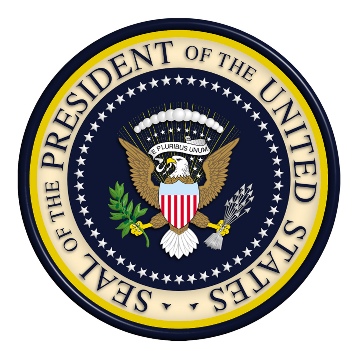Will the 2020 Presidential Election See A Decline in Voter Turnout?
There have been six cycle-to-cycle drops in the raw presidential vote in U.S. history

There were, of course, disagreements throughout the debates and primary campaigns as to what type of candidate would best bring out the types of voters Democrats needed to win – a candidate advocating great change (Bernie Sanders, Elizabeth Warren), a candidate who is a familiar face (Joe Biden), or a candidate who is a true moderate (non-starters like John Delaney, Steve Bullock).
Whether or not the overarching political strategy was to bring back Barack Obama voters who stayed at home in November 2016 or those Democrats and independents who rolled the dice on Donald Trump, the expectation was the general election campaign would be spirited, of high interest, and potentially generate strong turnout.
But now with many state primaries getting postponed – and uncertainty as to whether or when a second wave of the virus will hit the country this autumn – there is concern in some political quarters that voter turnout will be depressed in the 2020 general election.
Looking back across the decades, it has been unusual – though not unprecedented – to see fewer U.S. citizens cast their ballots for president from cycle to cycle.
Throughout the 19th and early 20th Centuries there was a gradual expansion in the number of states comprising the country in addition to steady population growth. [Other institutional factors also spurred voter growth like granting women the right to vote through the 19th Amendment and ending Jim Crow laws etc.].
Nonetheless, there have still been six cycles in which fewer votes were cast for president than in the previous election.
Two of these were due to the United States being at war.
From 1860 (4,681,267) to 1864 (4,018,202) the number of voters decreased by over half a million due to the secession from the union of 11 southern states.
Nearly two million fewer Americans cast their vote during the 1944 cycle in the midst of World War II (47,977,092) than during the 1940 cycle (49,912,852) – 13 months before the nation would be at war.
Despite a cycle-to-cycle boost in support for third party nominees for the Socialists, Prohibitionists, and Populists, overall there were almost 450,000 fewer votes cast during the 1904 presidential race (13,525,759) than in 1900 (13,971,846).
Three of the last downturns in raw voter turnout have occurred during the last eight cycles:
- More than one million fewer Americans voted in the race for president in 1988 (91,594,686) than during Ronald Reagan’s blowout 1984 victory (92,653,233)
- The large spike in interest in the 1992 presidential race with Ross Perot’s third party candidacy (104,426,611) cratered by more than eight million voters by 1996 (96,275,640)
- Likewise, the big uptick in voters during Barack Obama’s victory in 2008 (131,473,705) fell by more than two million in 2012 (129,237,642).
Although there were other extenuating circumstances driving the decline in vote, five of the six aforementioned cycles that saw a drop in raw votes occurred with incumbents on the ballot.
To what extent either of the major parties uses the COVID19 pandemic as a political asset or weapon to drive or depress turnout during the 2020 race remains to be seen.
The expectation is that Democratic lawmakers and governors will seek to continue to expand both the voting period window as well as the options available for voters to cast a ballot.
Follow Smart Politics on Twitter.

1. “…drop in raw votes occurred with ‘incumbents’ on the ballot” Theodore Roosevelt Jr. was seeking the presidency for the FIRST time in 1904 (he would bid for the office again in 1912, and even in 1916). Unlike in 2016, also a cycle without an elected incumbent at the ballot box, the decline in numerical vote in 1904 did not result in a loss for the incumbent party.
2. The ‘dear leader’ of the Other (major) Party indeed revealed the mindset of his party, namely by recently opining that his party will “never win any election ever again” with an enlarged voting period and/or augmented voting options.
3. “…crated by more than 8M….” Was 1996 the only cycle in which less than a majority of the eligible electorate turned out to vote (granted, back then only OR had a statewide mail-in balloting, and far fewer states offered early voting) ?